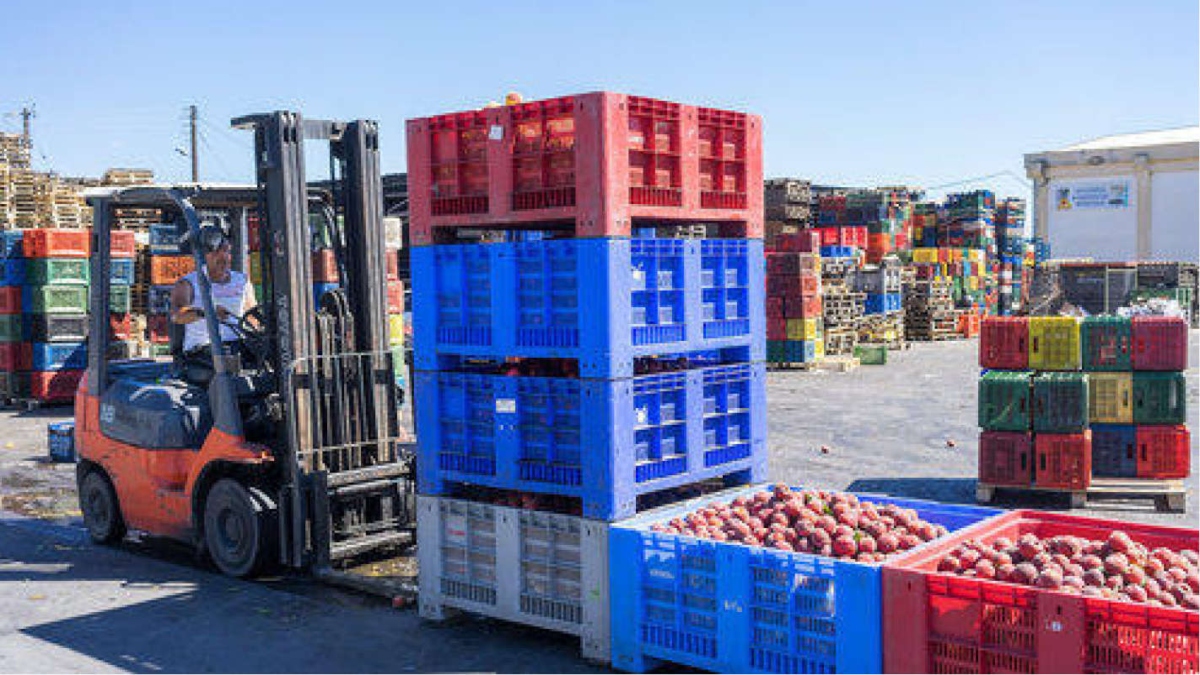The Agricultural and Processed Food Products Export Development Authority (APEDA) has been focusing on collaborative approach to bring synergy with number of organisations and institutions having inherent professional and specialised expertise in different areas for capacity building of various stakeholders and providing solutions for addressing some of the identified interventions for the development of Agriculture and its export enhancement, in consonance with the objectives set under Agri Export Policy announced by Government of India. The Agriculture Export Policy was framed with a focus on agriculture export-oriented production, export promotion, better price realization to farmer and synchronization within policies and programmes of Government of India. It focuses on “Farmers’ Centric Approach” for improved income through value addition at source itself to help minimize losses across the value chain. Policy therefore suggests to adopt the approach of developing product specific clusters in different agro climatic zones of the country to help in dealing with various supply side issues viz., soil nutrients management, higher productivity, adoption of market oriented variety of crop, use of Good Agriculture Practices etc.
APEDA has been engaged with State Govts. for the implementation of AEP. The States of Maharashtra, U.P., Kerala, Nagaland, Tamil Nadu, Assam, Punjab, Karnataka, Gujarat, Rajasthan, Andhra Pradesh, Telangana, Manipur, Sikkim and Uttarakhand have finalized the State specific Action Plan while the action plans of other States are at different stages of finalization. 28 States & 4 UTs have nominated Nodal agencies. State level Monitoring Committees under the Chairmanship of State Chief Secretary have been formed in 21 States & 1 UT.
Twenty Cluster level committees have been formed in the cluster district(s) of Potato in Punjab, U.P. (two separate districts), Isabgol in Rajasthan, Orange, Pomegranate, Grapes, Banana (3 districts) in Maharashtra, Banana in Tamil Nadu, Kerala, Mango in U.P., Dairy products in Gujarat, U.P., Rose onion in Karnataka, Fresh vegetables in U.P., Orange in M.P. and Potato in Gujarat (2districts). Two rounds of meetings have been conducted in the clusters for sensitization of the stakeholders and discussion on the interventions required.
It is in this perspective, APEDA and National Bank for Agriculture and Rural Development (NABARD) have signed MoU at their respective Head offices through online virtual mode to utilise their expertise by mutually working together to synergize the activities in the interest of agriculture and allied sectors for bringing better value to the stakeholders.
Dr. M. Angamuthu, Chairman, APEDA and Dr. G.R. Chintala, Chairman, NABARD graced the occasion and delivered an address highlighting the need and advantages of collaboration between APEDA and NABARD for implementation of Agri export policy . The MoU was signed by Dr. Sudhanshu, Secretary APEDA and Mr. Nilay D. Kapoor, Chief General Manager, NABARD.
NABARD is established as a development bank for providing credit for promotion of agriculture, small scale, cottage and village industries, handicrafts and other allied activities in rural areas, with a view to promote integrated rural development and securing prosperity of the rural areas and for matters connected therewith or incidental thereto. The NABARD Act, 1981, empowers NABARD to associate with various institutions for various developmental functions in the field of agriculture and rural development. NABARD has various schemes and programmes to assist farmers and has a field force spread across the country to regularly guide and support farmers.
AREAS OF COOPERATION
1. APEDA and NABARD would jointly work towards capacity development of various stakeholders.
2. APEDA and NABARD would jointly come towards organizing outreach programs, awareness programs and workshops for stakeholders.
3. To enhance farmers income for doubling the farmers’ income as set out by the Government of India.
4. Extending benefit of relevant schemes/other initiatives of NABARD & APEDA for development of FPOs.
5. APEDA would formulate program in association with NABARD to provide technical knowhow to cooperatives/FPOs to upscale infrastructure created for post-harvest management for APEDA scheduled products to promote exports.
6. To jointly identify clusters in various States for scaling up. APEDA will facilitate exports by the FPOs assisted/promoted by NABARD.
HIGHLIGHT
Twenty Cluster level committees have been formed in the cluster district(s) of Potato in Punjab, U.P. (two separate districts), Isabgol in Rajasthan, Orange, Pomegranate, Grapes, Banana (3 districts) in Maharashtra, Banana in Tamil Nadu, Kerala, Mango in U.P., Dairy products in Gujarat, U.P., Rose onion in Karnataka, Fresh vegetables in U.P., Orange in M.P. and Potato in Gujarat (two districts).























